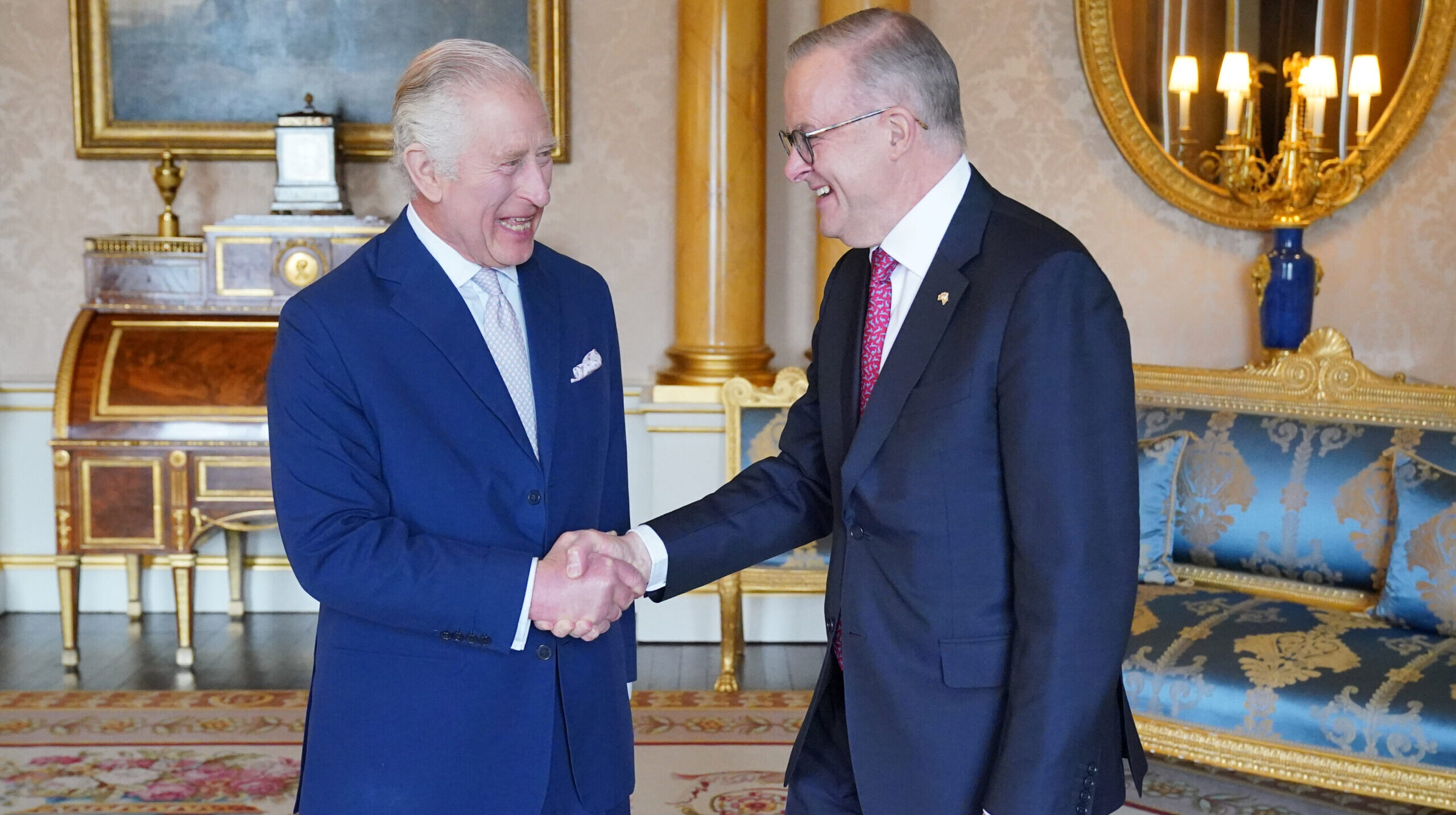This weekend, Australians are set to reject Prime Minister Anthony Albanese’s plan to alter the constitution and create a new federal advisory body with the somewhat clunky title of “the Aboriginal and Torres Strait Islander Voice”. If the result is as expected, they will have voted against the notion that one ethnic group, however historically oppressed, should be afforded special constitutional status.
Yet alongside the obvious potential losers from the referendum result — Albanese, his Labor Party, the wider “Yes” campaign — there’s a longer-term victim: the Australian republican movement.
A year ago, following the death of the Queen, speculation was rife that the country would finally sever its links with the British monarchy. Should Albanese fail in his attempt at constitutional reform with the Voice referendum, that prospect will likely be extinguished for a generation at least.
Perhaps because the Queen was still alive when he entered office in May last year, Albanese chose to make the Voice referendum, not the monarchy, his first constitutional priority. By the autumn of 2022, things had changed. King Charles III had replaced his mother as Australia’s head of state, and the polls suggested Albanese and the “Yes” campaign would easily win the Voice referendum. A subsequent vote on becoming a republic, perhaps in Albanese’s second term, seemed likely.
How times change. For many in both Australia and New Zealand, apathy counts for more than republicanism, and they’re unlikely to take kindly to their national debate being dominated by another constitutional question that feels removed from the realities of daily life. New Zealand’s Labor Prime Minister, Chris Hipkins, summed up this attitude earlier this year when he described himself as a republican, but made clear that he wouldn’t be pushing for the constitutional change. The mood isn’t dissimilar to how most Britons think of the House of Lords: there’s an acceptance that it’s outdated and needs reform, but nobody cares enough to bother getting round to scrapping it.
What’s more, Albanese himself won’t want to waste his remaining political capital on such a risky bet, as Australian politics is infamous for its divisive leadership spills. His two Labor predecessors as PM, Kevin Rudd and Julia Gillard, were both ruthlessly deposed by dissatisfied colleagues. Were Albanese to call a second constitutional referendum and lose, he’d be toast.
This leaves aspirations for an Australian republic in limbo. If a Left-wing Labor leader such as Albanese won’t legislate for a referendum, who will? While there are republican voices within the centre-right Liberal Party, there remain many trenchant monarchists, notably former prime ministers Scott Morrison and Tony Abbott. It seems highly doubtful a future Liberal premier would make it a priority, and the same applies to whoever succeeds Albanese as Labor leader. However much they view the monarchy as an anachronism, they’ll be wary of letting another constitutional referendum backfire.
And so, just a year after Australia’s transition to a republic seemed inevitable, the monarchy now looks set to survive for another generation at least. One day, Australia will make the change: it is self-evidently odd that its head of state is an English royal. But this won’t come about any time soon. Indeed, after the Voice referendum, it almost certainly won’t be in the lifetime of Charles III. The ultimate irony is that it’s Albanese, the self-professed republican with an eye for constitutional reform, who has unintentionally advanced the monarchist cause.











Join the discussion
Join like minded readers that support our journalism by becoming a paid subscriber
To join the discussion in the comments, become a paid subscriber.
Join like minded readers that support our journalism, read unlimited articles and enjoy other subscriber-only benefits.
Subscribe